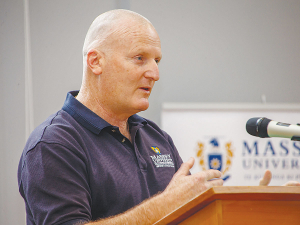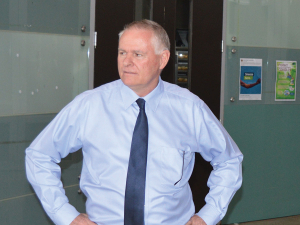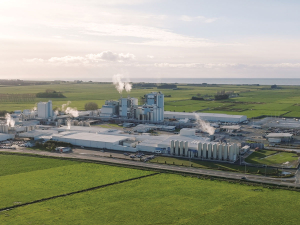A key focus of a new $26.1 million study into the sustainability of our farming sector will be to try and define that regenerative agriculture might look like in a NZ context. Peter Burke reports...
The seven year government-funded study will see collaboration between universities, CRI's, Dairy Trust Taranaki and an end user advisory group, which will include the pastoral industry/farmers, iwi, investment and consumer groups.
The project is being led by Massey University's School of Agriculture and Environment aims to help farmers to make informed decisions on the financial and environmental benefits of adopting regenerative farming practices.
Agriculture Minister Damien O'Connor says the new Whenua Haumanu programme will study the whole pastoral farming system from field to fork.
He says it'll scientifically build a picture that includes soil biodiversity, pasture performance, animal production and welfare, and the quality of the food produced.
"This is the most comprehensive study ever undertaken of our pastoral systems, both conventional and those incorporating regenerative farming practices," he says.
"It's part of broader coordinated work that the Government is backing to provide a robust evidence base to explore regenerative farming practices alongside conventional pastoral practices in both dairy cow, cattle and sheep systems."
It will also test claims that many of our current conventional pastoral practices are already regenerative.
O'Connor adds that a key aim of the programme is to investigate potential benefits of diverse pastures for grazing animals, as well as regenerative farming practices, as these have yet to be thoroughly studied for the New Zealand farming context.
A Shovel and Scalpel Approach
One of the Massey University scientists who'll be involved in the programme is dairy production systems expert Professor Danny Donaghy.
He says an aim is to see if they can measure any benefits from some of these regenerative practices that people are touting. Donaghy says there has been a lot of talk about what regen means in a NZ context because it's different to what other countries believe.
He says the neat thing about the project is that involves farmers in the way the old (MAF) system did, where there was a partnership between farmers, scientists, government and industry. "Some of our farmers are saying they are already regenerative with their practices so they are asking what this means in a NZ context?" Donaghy told Rural News.
"Also, what is important for our consumers as well - what do they want? Because you have organisations like McDonalds and Nestle saying that they want to source regenerative produce, but no one can actually define what that means. Being able to look and explore it in a NZ context is really important."
Donaghy says another thing they will look at is what impact regen practices may have on soil. This will include whether these are able to change soil structure and influence such things as water infiltration rates, water holding capacity and nutrient wrenching.
He believes the role of science in the study will be a significant factor and being able to accurately measure certain elements of regen.
"One way of describing this is the shovel verses a scalpel approach - with the shovel digging into the soil and saying, well what's the cover, what's the texture," Donaghy explains. "Then we come along and say... well we can do microbial DNA; we can do the international standard for worm counts and measure nutrient losses - all these sorts of things."
Donaghy says by working alongside farmers and consultants, scientists can and look at the tools that they might bring out in their own research as well as tools that can be used on farm.










